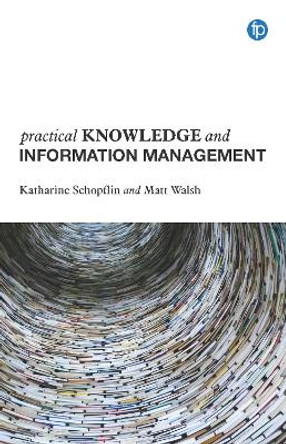Description
This book gathers together, in a new way, established and contemporary thinking about how to get the best out of information technology and information systems investments. Working managers who are beset by the complexities of information management in the age of Big Data and the Social Web, and students who are trying to make sense of information management in a chaotic world that is more and more driven by the Internet, will all benefit from this new treatment of a long-standing and problematic domain. Importantly, the book reveals and clarifies the dependencies that exist between the inner world of information technology and the outer world of people and organisations at work.
The book differs from other books in its reflective approach. It avoids lengthy, descriptive, and prescriptive dogma. Rather, it provides tools for thinking about information management and it identifies strategic and tactical options at six levels: from the simple consideration of information technology and information systems, right through to issues of organisational performance and business strategy. At the heart of the matter are two critical and tightly connected issues: the ways that we conceive and manage an organisation's processes, and the ways that we conceive and manage the information that an organisation needs to sustain those processes. The six-level framework that achieves this clarity is the "Information Management Body of Knowledge" (familiarly known as the "IMBOK"). This easy-to-understand and easy-to-remember framework has been found to be extremely useful in business, in government, in civil society and in education. Throughout the book, selected research papers are identified and summarised. There are also summary chapters from three different operational perspectives: performance and competency assessment using the IMBOK, undertaking research into related issues, and a review of parallel expert thinking.
This book standsas a reference point and resource for all those who need to straddle the disparate worlds of "information technology" and "business". It provides firm pedagogical foundations for courses dealing with business management in the information age, and it provides a sound reference framework for researchers who need to position research projects related to information technology and information systems in a wider context. For busy managers, who simply wish to identify, understand and successfully manage information technology-related opportunities, it provides an ideal arrangement of ideas and tools that will help them."I would recommend this book to ICT practitioners who are lost in the functional decomposition that is taking place in the ICT industry at the moment, and who want to get an understanding of the "big picture" and how they fit into it; to managers in both business and technology roles, who need to have a working framework for linking business to technology opportunities and a framework that can facilitate conversation between technical and non-technical managers at all levels; and to academics as a model rich with application and explanatory power that really deserves further investigation." from the Foreword by Grafton Whyte, Harold Pupkewitz Graduate School of Business, Namibia "An initial observation is the obvious maturity and confidence expressed in the book which is comprehensive and authoritative in content and approach. The bottom-line for investing in Information Technology has always been a critical issue for managers given previous reports of its potential lack of productivity to business enhancement and/or service delivery. The book is unique as it presents a clear and present analysis of how business value may be achieved. There are indeed a myriad of 'new' perspectives emerging around topics associated with, for example, knowledge management, social media, business analytics, etc. The book presents a realistic opportunity of how to progress this area through a grounding in information and systems which form the foundation of electronic processes for business benefit. It will be of significant value to academics, a range of student populations at all levels and will also offer a useful intellectual tool for consultants and practitioners. The book is highly reflective, insightful and is recommended as a serious and important contribution to the complexities of investing in information." Raymond A Hackney, Brunel University London, UK
About the Author
Andy Bytheway is presently researching information systems engineering standards at the University of the Western Cape in South Africa. Over the last 16 years, working first as Professor of Information Systems and then of Information Management, he has developed and tested the IMBOK in different contexts. Prior to 1998 he was a Research Fellow at the Cranfield School of Management in the UK. He has led international work on standards for information systems engineering, and he has authored more than 100 practitioner and academic reports and papers; this is his fourth book.
Reviews
"I wish I could have read this book when I was younger. (...)This book is as essential read for technical specialists and business generalists who want to see the big picture and create more value together." - Ernest Hughes, Computing Reviews, February 2015
Book Information
ISBN 9783319119083
Author Andy Bytheway
Format Hardback
Page Count 280
Imprint Springer International Publishing AG
Publisher Springer International Publishing AG








